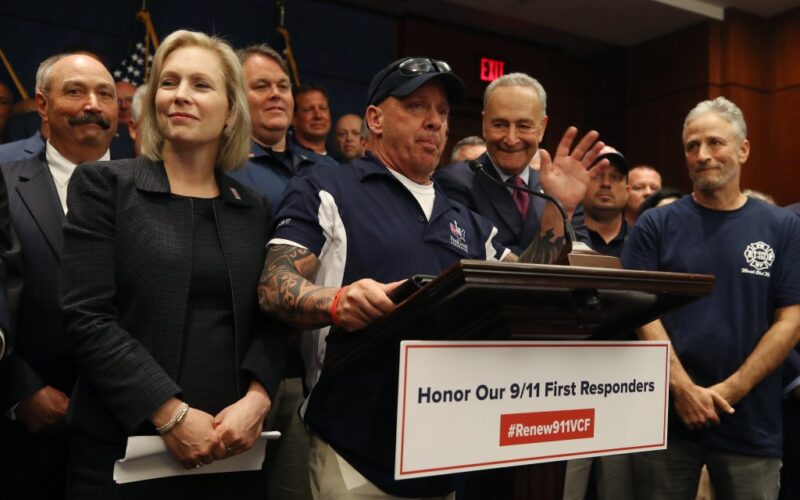September 11 survivors and advocates flocked to Washington D.C. to again push for fully funding the embattled World Trade Center Health Program — a pivotal lifeline the Trump administration has tried to gut amid its proposed federal budget cuts.
A bipartisan bill to fully fund the program through 2090 was introduced in Congress Wednesday, officials said.
At the same time, 9/11 survivor John Feal has once again brought a small army of 9/11 survivors and advocates to D.C. to ensure that the bill gets the votes it needs to pass.
The bill, titled the 9/11 Responder and Survivor Health Funding Correction Act of 2025 is expected to be part of federal budget talks, which begin this March.
“We talk about cancers, COPD and respiratory illnesses killing our 9/11 heroes and survivors, but what else is killing our people is the toxic redundancy in Washington,” said Feal, who took an army of survivors to D.C. in 2011 to demand the fund’s creation. “These men and women are traveling to D.C. with stage three and stage four cancers so they can continually and redundantly tell their story. But enough with this cruelty. Let’s get this done and let us move on and take care of our illnesses in peace.”
The World Trade Center Health Program was created as part of the James Zadroga 9/11 Health and Compensation Act. The program, as well as the 9/11 Victims’ Compensation Fund were extended to provide lifetime care for the heroes and victims of 9/11, officials said. Yet the initial funding the program received couldn’t keep up with its extended mandate.
A bipartisan bill to fully fund the program was poised to pass in December, but at the 11th hour was stripped from the national spending plan by Trump and Elon Musk.
Earlier this month, Musk’s steep cuts to the Centers for Disease Control led to 20% of the health program’s staff to be given pink slips, but the employees were rehired after bipartisan outrage erupted over the cuts.

Advocates and lawmakers on both sides of the aisle agree the cuts would have had a dramatically negative impact on the program’s ability to serve members, including big delays in getting coverage and care.
The health fund provides care to around 137,000 people who have been sickened from exposure to toxins during and after the terror attacks on the World Trade Center, as well as the hijacked plane crashes in Shanksville, Pa. and at the Pentagon.








